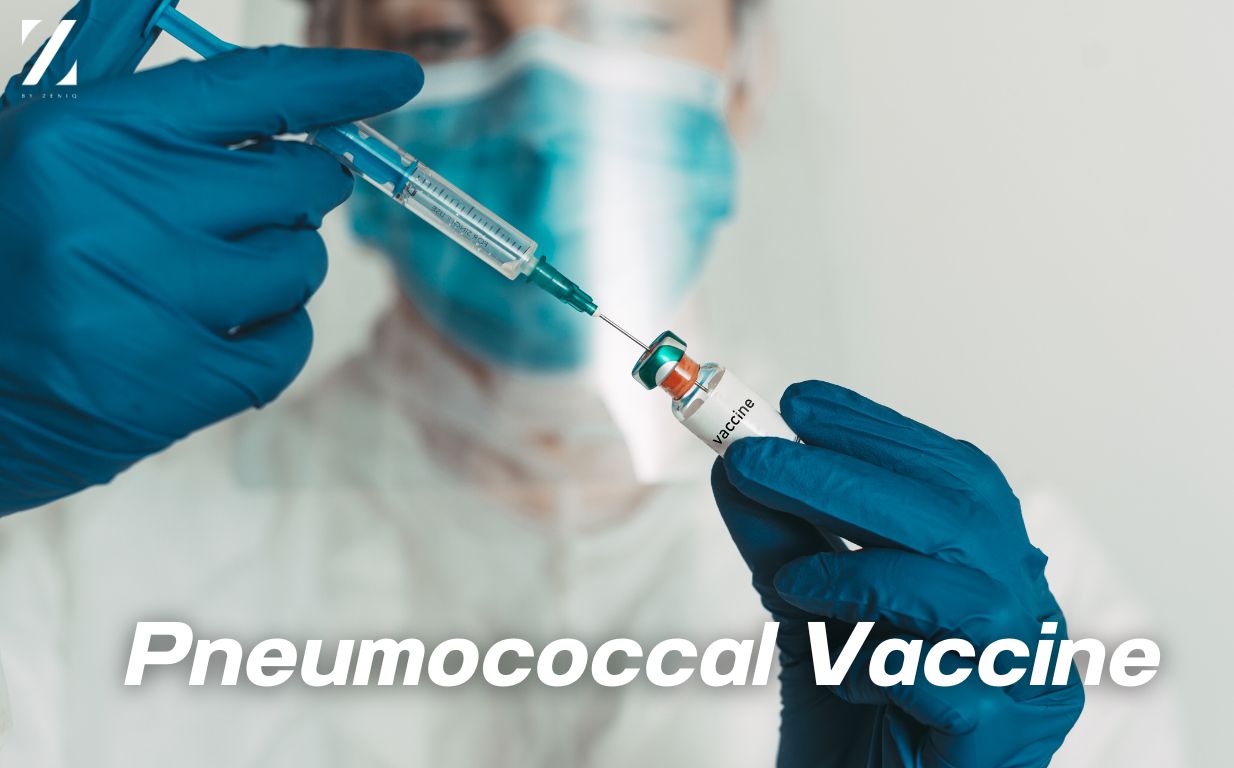Pneumococcal disease remains a significant health concern, particularly for adults who are at greater risk of severe infections. In Thailand, two pneumococcal vaccines are available to help prevent this potentially deadly disease: the 13-valent pneumococcal conjugate vaccine (PCV13) and the 23-valent pneumococcal polysaccharide vaccine (PPSV23). Each vaccine targets a different set of Streptococcus pneumoniae serotypes, the bacteria responsible for causing pneumonia, meningitis, and other serious infections.
Two types of vaccines available for adults:
- 13-valent pneumococcal conjugate vaccine (PCV13): Contains serotypes 1, 3, 4, 5, 6A, 6B, 7F, 9V, 14, 18C, 19A, 19F, and 23F. This vaccine provides high immunity and covers serotypes responsible for pneumococcal disease in Thailand by 75%gate vaccine (PCV13)
- Covers strains 1, 3, 4, 5, 6A, 6B, 7F, 9V, 14, 18C, 19A, 19F, and 23F
- This vaccine is highly immunogenic and covers approximately 75% of the strains that cause pneumonia in Thailand.
- 23-valent pneumococcal polysaccharide vaccine (PPSV23) : Contains serotypes 1, 2, 3, 4, 5, 6B, 7F, 8, 9N, 9V, 10A, 11A, 12F, 14, 15B, 17F, 18C, 19A, 19F, 20, 22F, 23F, and 33F. Covers serotypes responsible for pneumococcal disease in Thailand by 82%nt polysaccharide vaccine (PPSV23)
- Covers strains 1, 2, 3, 4, 5, 6B, 7F, 8, 9N, 9V, 10A, 11A, 12F, 14, 15B, 17F, 18C, 19A, 19F, 20, 22F, 23F, and 33F
- This vaccine covers approximately 82% of the strains that cause pneumonia in Thailand.
Who are the Vaccines Recommended for?
- Age 65 and older.
- Age 18-64 with immunodeficiency
- Chronic kidney disease (stage 4 and above), nephrotic syndrome without or with ongoing dialysis, HIV infection with CD4 count <200 cells/µL, congenital or acquired immunodeficiency, cancer (e.g., Hodgkin’s lymphoma, chronic lymphocytic leukemia, multiple myeloma), immunosuppressive therapy (including long-term systemic steroids or radiation therapy), and organ transplant recipients

